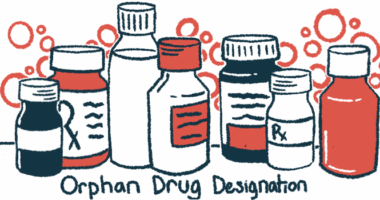Treg Therapy ALS001 Found to Ease Oxidative Stress in Early Trial

Treatment with Coya Therapeutics‘ ALS001, a regulatory T-cell (Treg) therapy being developed for amyotrophic lateral sclerosis (ALS), was found to reduce markers of oxidative stress — a type of cell damage — and inflammation in a small early trial.
The experimental Treg therapy was tested in a Phase 1 clinical trial in Texas that enrolled three ALS patients. It’s now being evaluated in a Phase 2 trial.
“Biomarker driven patient stratification is a hallmark in oncology trials, but has lagged in neurodegenerative diseases,” Howard Berman, PhD, Coya’s CEO, said in a press release. “With this data and new findings from the Phase 2a trial, we will aim to leverage oxidative stress and inflammatory biomarkers to enrich for patients who are more likely to respond to our Treg enhancing treatment modalities across our platforms.”
The findings were detailed in a study titled “Tregs Attenuate Peripheral Oxidative Stress and Acute Phase Proteins in ALS,” published in the journal Annals of Neurology.
Tregs are a type of immune cell that normally help to “put the brakes” on the immune system, broadly acting to reduce inflammation and promote tissue repair. ALS001 is an experimental therapy that involves isolating Tregs from an individual patient, growing out more of the cells in a laboratory, and then infusing the cells back into the person. The therapy has been given orphan drug designation in the U.S.
In the Phase 1 pilot trial (NCT03241784), three people with ALS were enrolled and given the investigational Treg therapy. Infusions were first given every two weeks for eight weeks, followed by a six-month “washout” period, and later by infusions every four weeks for 16 weeks, or about four months. Throughout the trial, participants also received injections with the immune-modulating molecule interleukin-2.
Results from the trial, published in 2018, showed that the experimental treatment was well-tolerated, prompting the launch of an ongoing Phase 2a study (NCT04055623).
Oxidative stress is a type of cell damage caused by highly reactive oxygen-containing molecules that are produced as a result of normal cellular activities. A number of studies have indicated that oxidative stress is increased in ALS, likely contributing to the disease’s progression.
Now, researchers assessed levels of ox-LDL, a marker of oxidative stress, in participants’ blood during the Phase 1 trial. An initial analysis that included samples from 30 patients and 10 people without the disease confirmed that ox-LDL levels were elevated in those with ALS. This was especially true among those with fast-progressing disease.
In all three study participants, ox-LDL levels were reduced during the first round of Treg infusions, then they rose during the six-month washout. With the second round of infusions, ox-LDL levels were again suppressed, and then increased again after the infusions were over.
In the first two participants, disease severity (measured via Appel ALS Score) mirrored changes in ox-LDL scores. Specifically, clinical status was generally stable while ox-LDL levels were suppressed during infusions, but disease severity worsened during the washout period and after the second infusion round.
The third participant, who had comparatively slow-progressing ALS, did not experience substantial changes in disease severity throughout the study.
Oxidative stress is closely associated with inflammation; such stress can trigger an inflammatory response. Conversely, inflammation can increase oxidative stress.
The researchers found that levels of three inflammatory markers — called sCD14, LBP, and CRP — showed generally similar trends as ox-LDL levels, decreasing during ALS001 infusions and then increasing after.
“Our laboratory has long documented that peripheral inflammatory constituents … and acute phase proteins are increased in ALS patients, with levels more markedly elevated in fast progressing patients. Our new data demonstrates that Treg cell therapy enhances suppression of proinflammatory biomarkers and, in turn, correlates with slowing of disease progression,” said Stanley Appel, MD, chair of Coya’s Scientific Advisory Board and the study’s senior author.
“This report confirms that there are ongoing OS [oxidative stress] and proinflammatory responses in patients with ALS, and that expanded autologous [from-the-self] Treg therapy suppresses these responses while potentially stabilizing the patient’s clinical status,” the scientists concluded.







